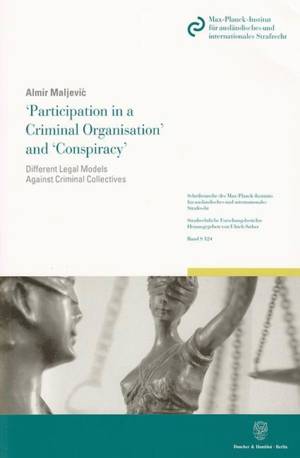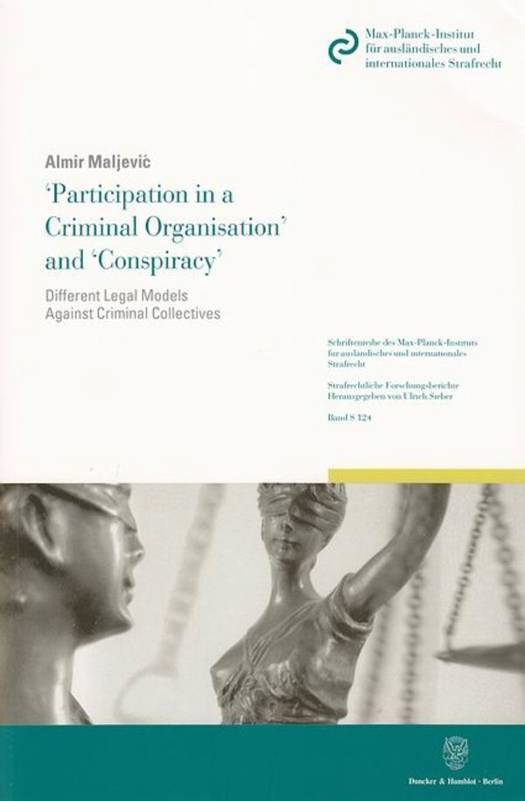
Bedankt voor het vertrouwen het afgelopen jaar! Om jou te bedanken bieden we GRATIS verzending (in België) aan op alles gedurende de hele maand januari.
- Afhalen na 1 uur in een winkel met voorraad
- In januari gratis thuislevering in België
- Ruim aanbod met 7 miljoen producten
Bedankt voor het vertrouwen het afgelopen jaar! Om jou te bedanken bieden we GRATIS verzending (in België) aan op alles gedurende de hele maand januari.
- Afhalen na 1 uur in een winkel met voorraad
- In januari gratis thuislevering in België
- Ruim aanbod met 7 miljoen producten
Zoeken
'Participation in a Criminal Organisation' and 'Conspiracy'
Different Legal Models Against Criminal Collectives
Almir Maljevic
€ 76,45
+ 152 punten
Omschrijving
The extension of criminalisation to include the early preparatory stages of the commission of criminal offences represents one of the most debatable issues in modern criminal law. In response to some of the most complex forms of crime usually committed by criminal collectives (such as terrorism, organised crime, or economic crime), different legal systems have developed diverse legal models to address the problem. All in all there are two main models. Countries of the continental criminal law tradition usually rely on the 'participation in a criminal organisation/association' model, whereas countries of the common law tradition utilise the 'conspiracy' model. These models, although having similar functions (to criminalise the early preparatory stages of the commission of criminal offences), are very different in their constitutive elements.This book, for the very first time, explains the differences between the two types of models and points out the process of transfer of their elements from traditional models (Germany and England and Wales) to the international models (UN and EU), and furthermore to transitional models (Bosnia and Herzegovina, Croatia, and Serbia).The author is of the opinion that the differences between the two types of models are such that they cannot be seen as viable alternatives in criminal law, as suggested by the international models. He therefore suggests that the fight against criminal collectives requires cumulative criminalisation using both models in order to be effective.
Specificaties
Betrokkenen
- Auteur(s):
- Uitgeverij:
Inhoud
- Aantal bladzijden:
- 358
- Taal:
- Engels
- Reeks:
- Reeksnummer:
- nr. 124
Eigenschappen
- Productcode (EAN):
- 9783428135776
- Verschijningsdatum:
- 9/02/2011
- Uitvoering:
- Paperback
- Formaat:
- Trade paperback (VS)
- Afmetingen:
- 147 mm x 224 mm
- Gewicht:
- 4486 g

Alleen bij Standaard Boekhandel
+ 152 punten op je klantenkaart van Standaard Boekhandel
Beoordelingen
We publiceren alleen reviews die voldoen aan de voorwaarden voor reviews. Bekijk onze voorwaarden voor reviews.









